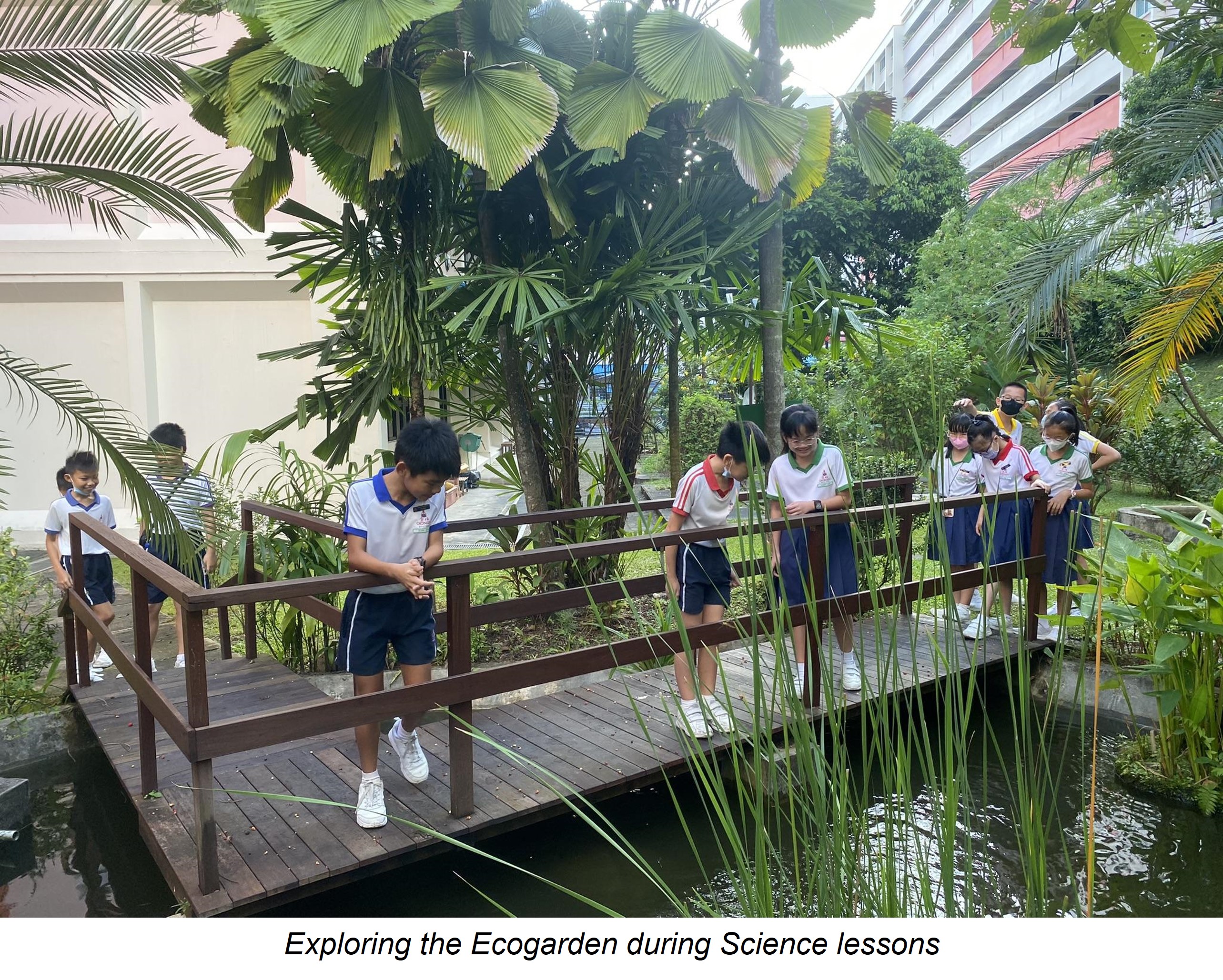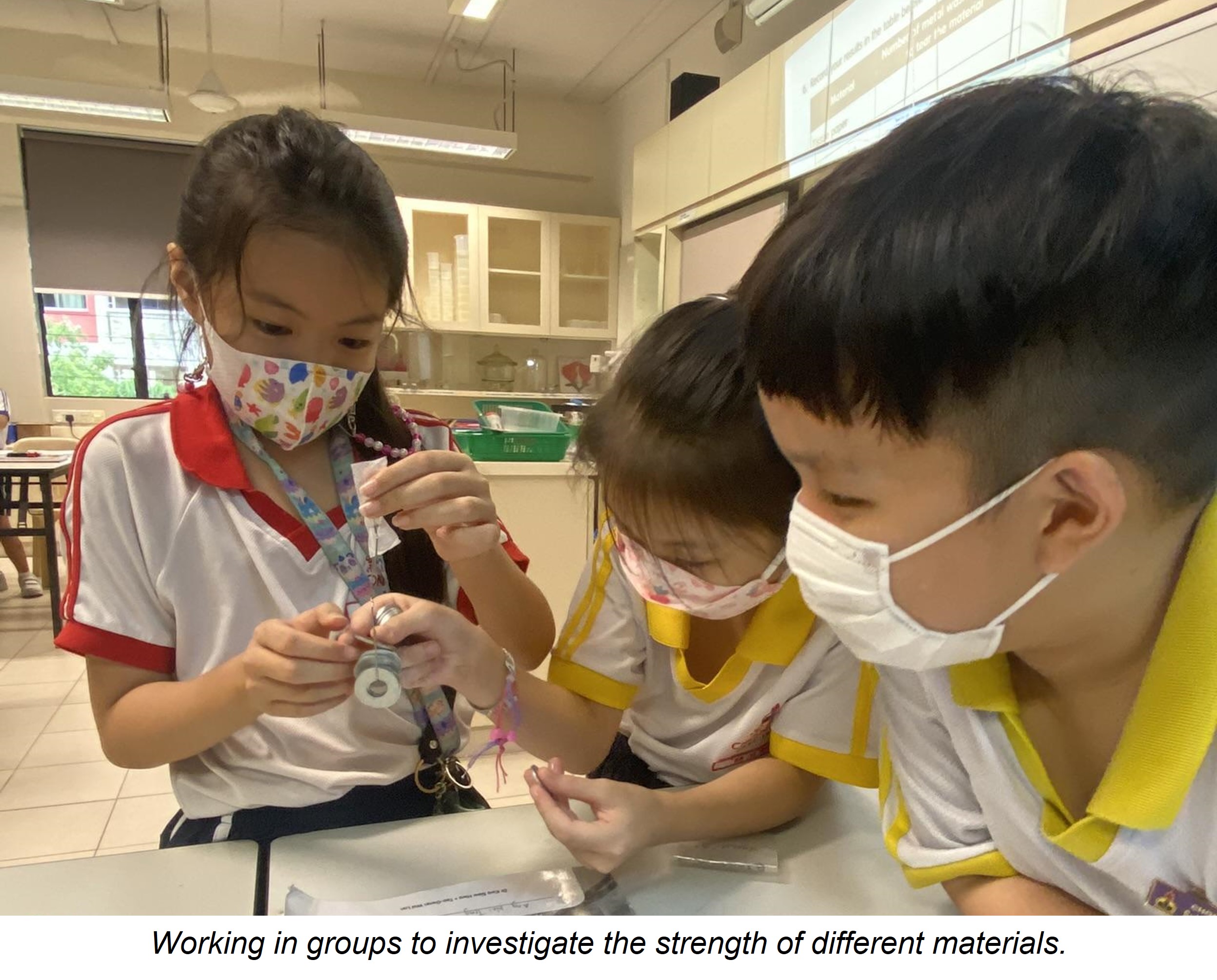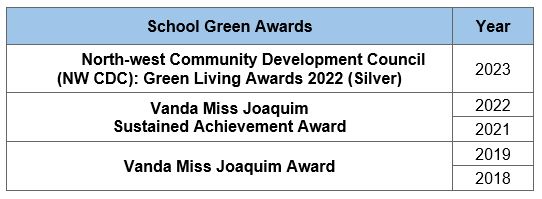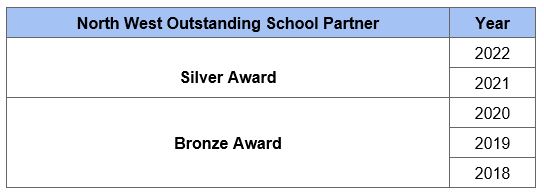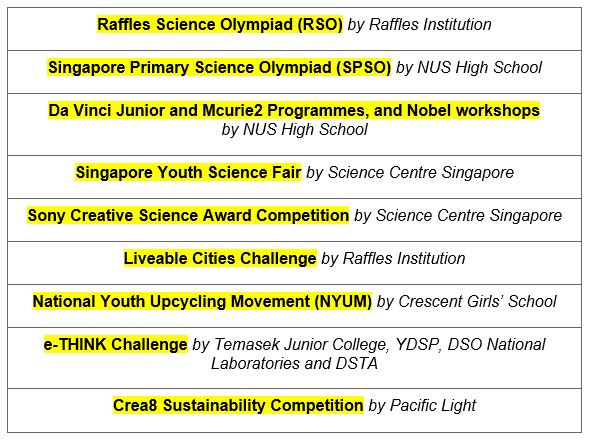Science Department
Our Vision
Our students are diverse, with different interests, aptitudes and learning needs for Science. In line with MOE’s Science curriculum framework, we seek to:
- enthuse and nurture all students to be scientifically literate, so that they are able to make informed decisions and take responsible actions in their daily lives; and
- provide strong Science fundamentals for students to innovate and pursue STEM for their future learning and work.
We hope that our students will be inspired by Science, and have opportunities to inquire like Scientists such that they will be empowered to innovate using Science to solve problems of the future.
Inquiry-Based Learning
The BSCS 5E Instructional Model requires the learning experience to be sequenced so as to enable learners to construct their understanding of a science key concept over time. The phases of the learning sequence are to: engage, explore, explain, elaborate, and evaluate.
Inquiry-based Science instruction engages students in the processes of formulating predictions, organising and interpreting data, and communicating results using Science terminology.
Using these approaches to design Science lessons, we seek to inculcate in students a sense of curiosity and wonderment about the things around them. We strive to provide opportunities for them to relate scientific concepts to real-life phenomena and to encourage them to ask questions about the world around them. With these, the learning of Science will then become more meaningful and joyful.
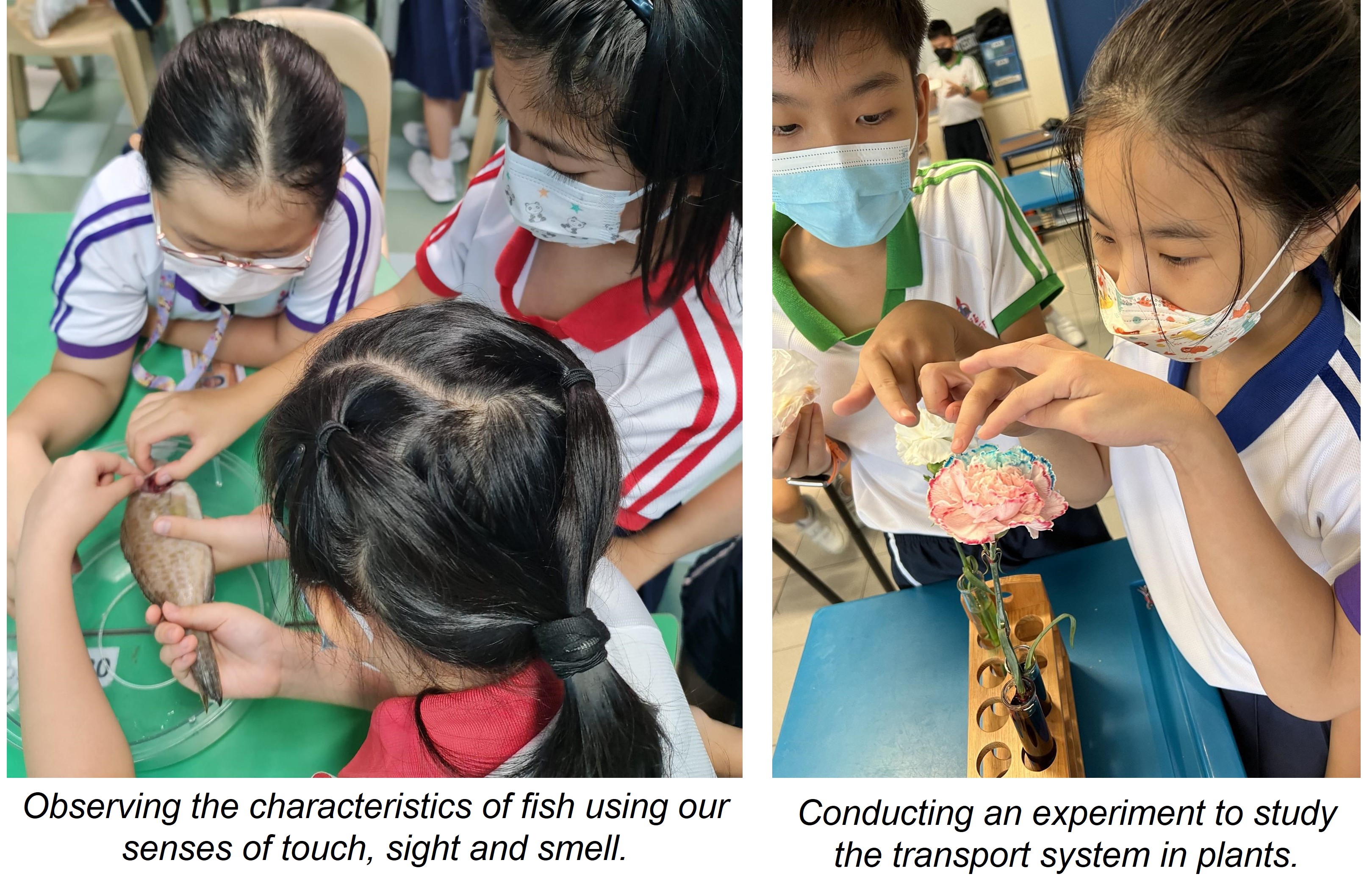
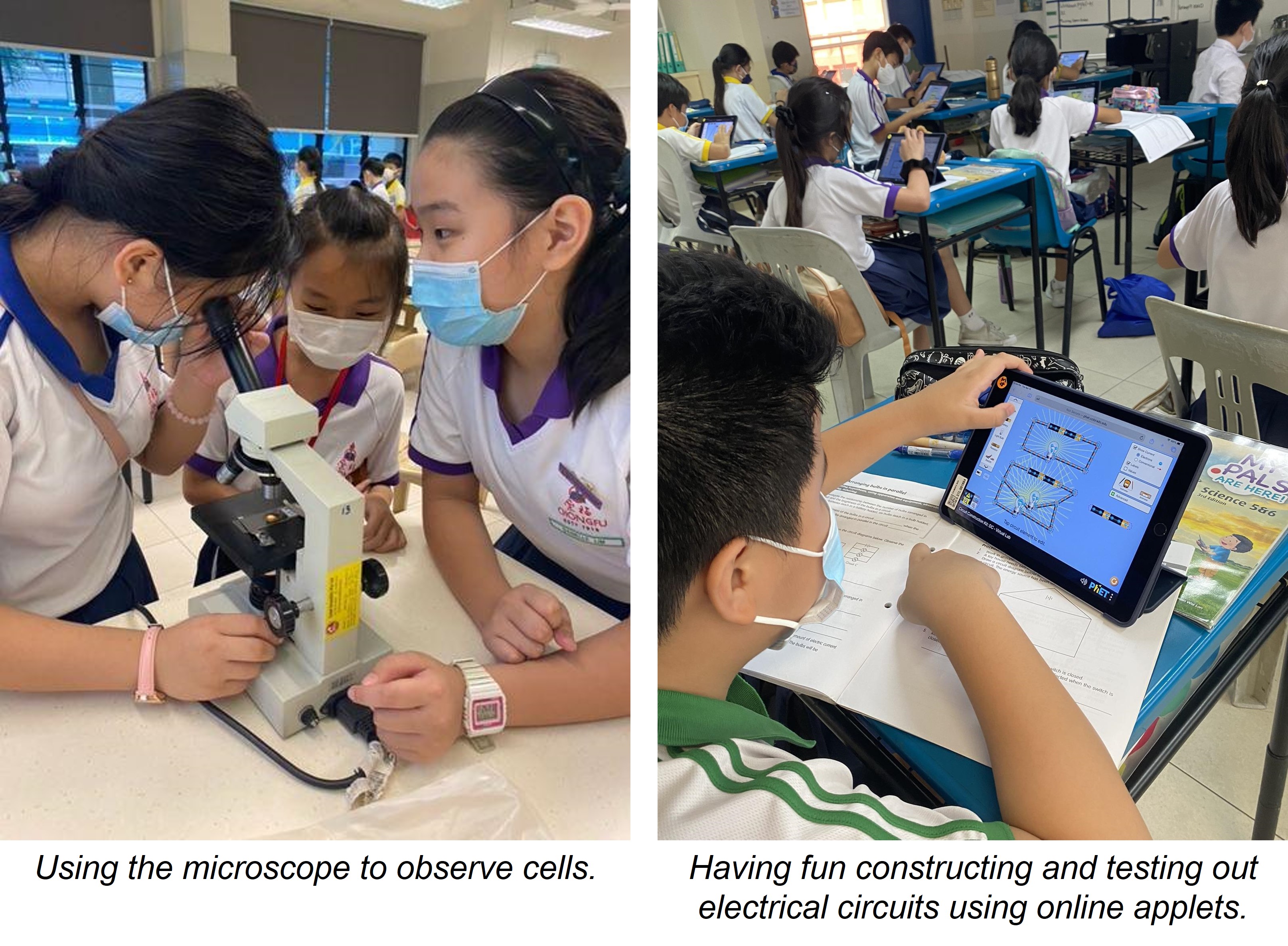
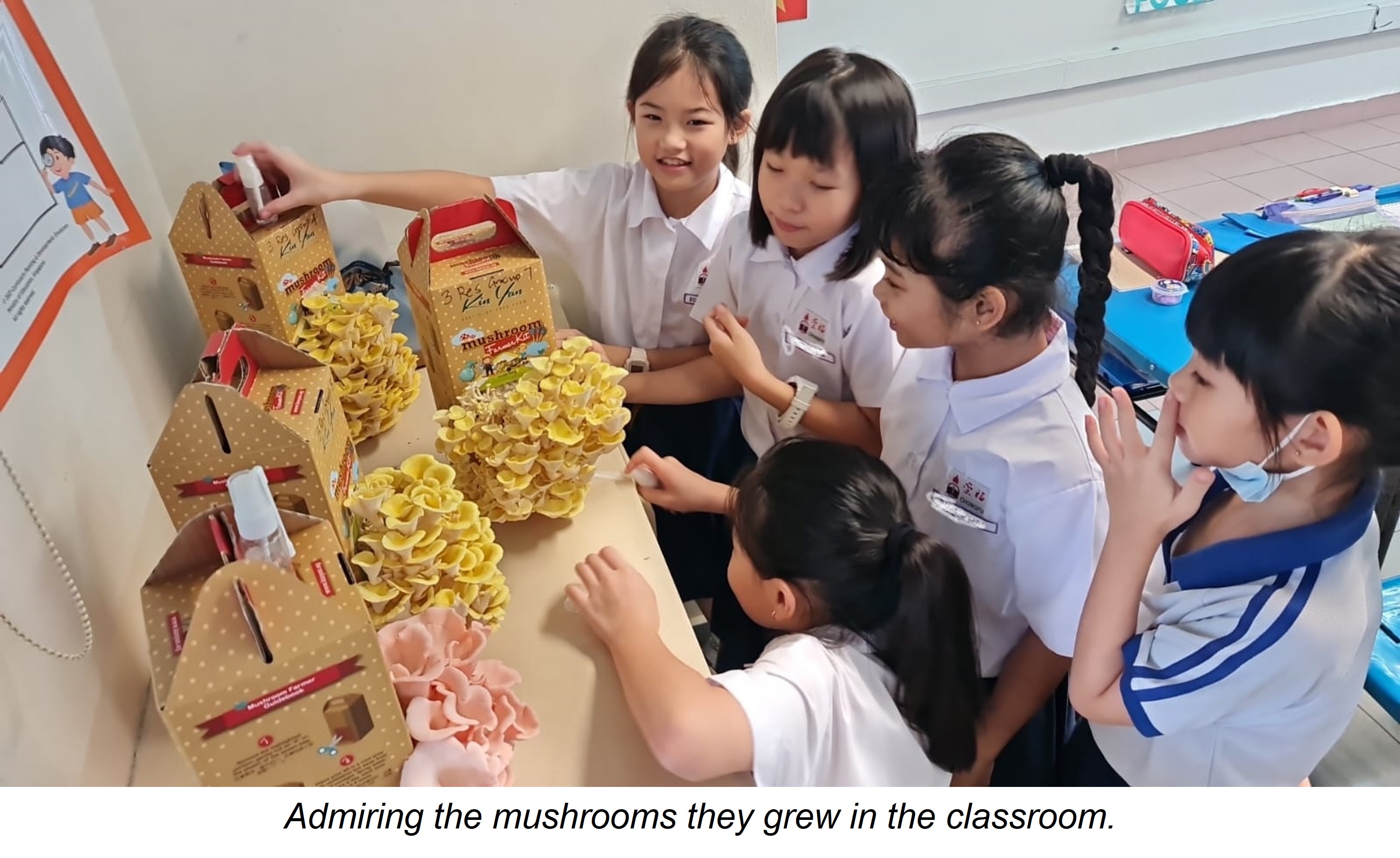
Science Curriculum and Holistic Assessment
The Science curriculum is implemented in the classroom through teacher-facilitated hands-on activities, experiments and discussion. Where meaningful, students also practise Thinking Routines such as “I See – I Think – I Wonder” during the inquiry process and “Claim – Evidence – Reasoning” when giving scientific explanations.
The learning activities are designed to develop pupils in various domains and holistic assessment tasks are crafted to monitor pupils’ progress. To assess attitudes and skills, tasks beyond the traditional pen-and-paper tests have been designed. Some examples of Science holistic tasks include model-making projects and performance tasks.
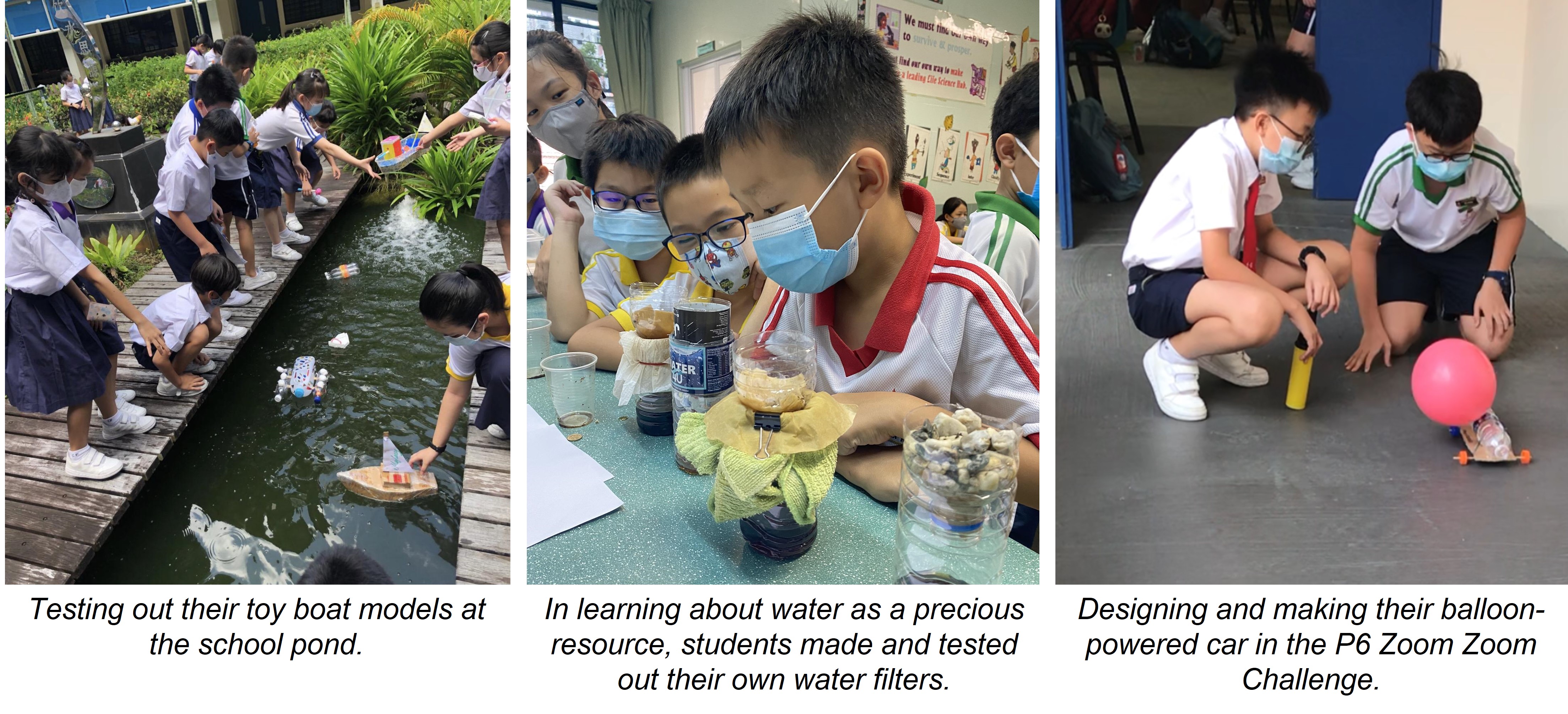
Department Programme Highlights
-
For Science WANDer, students presented magic tricks to the school during morning assembly. In one instance, the student magicians demonstrated how an egg could be pushed into a bottle using differences in air pressure. They then linked this to the experience of getting “airplane ears” while on a plane.
As part of an intra-school challenge, some of our students embarked on an engineering project, CanBridge Hold'em. Using no more than 50 satay sticks, they are to design and build bridges that could support at least 1kg of mass. The myriad of designs they came up with was incredible!
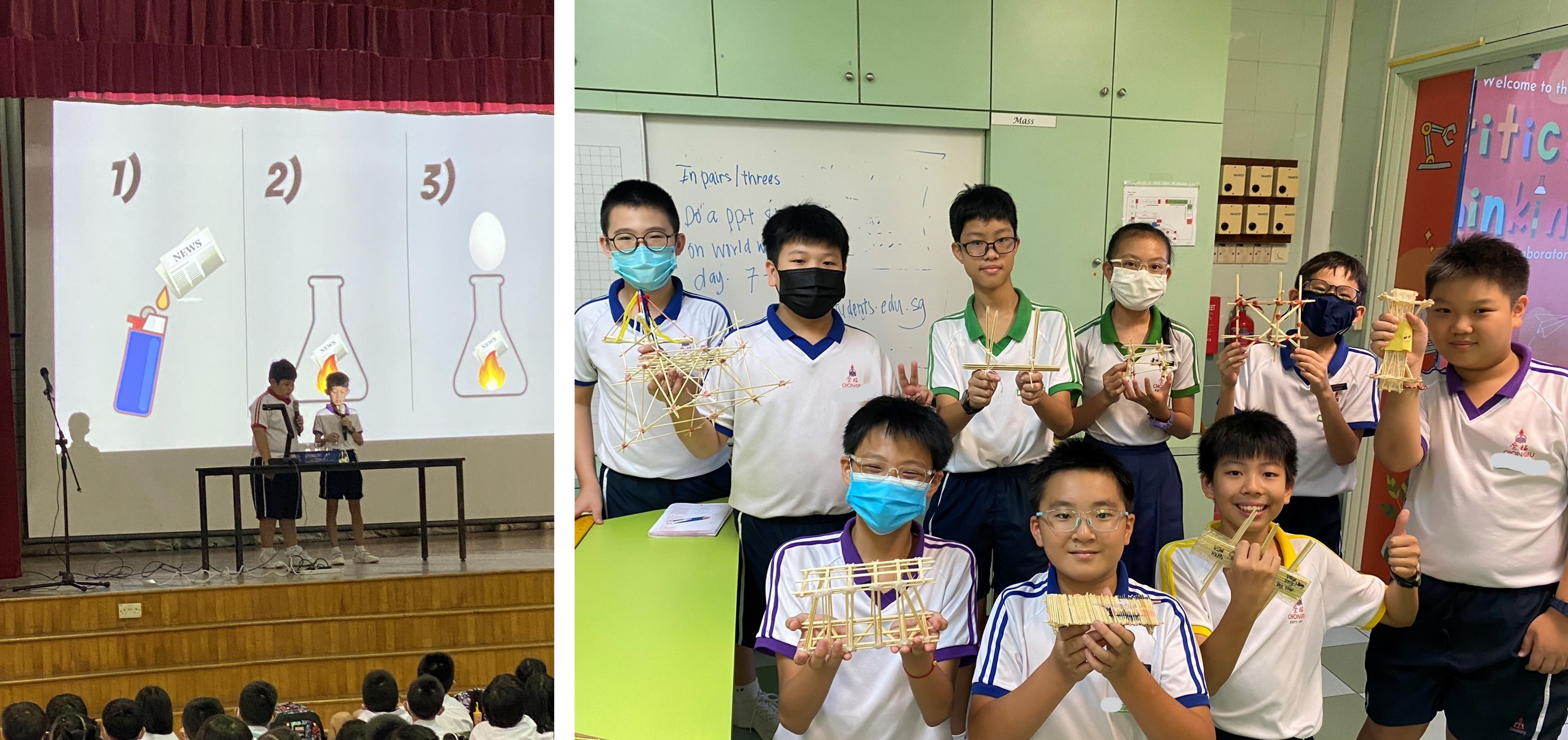
During recess, students can pick up Science magazines at the Scientists’ Reading Lab to read comics related to Science concepts or drop by Chongfu’s Grace to tinker with Science toys and catch insects.
These are just several ways through which the Science department provides opportunities outside the classroom for students to learn real-life applications of Science, Technology, Engineering and Mathematical (STEM) concepts. With these experiences, learning Science become more meaningful and joyful.
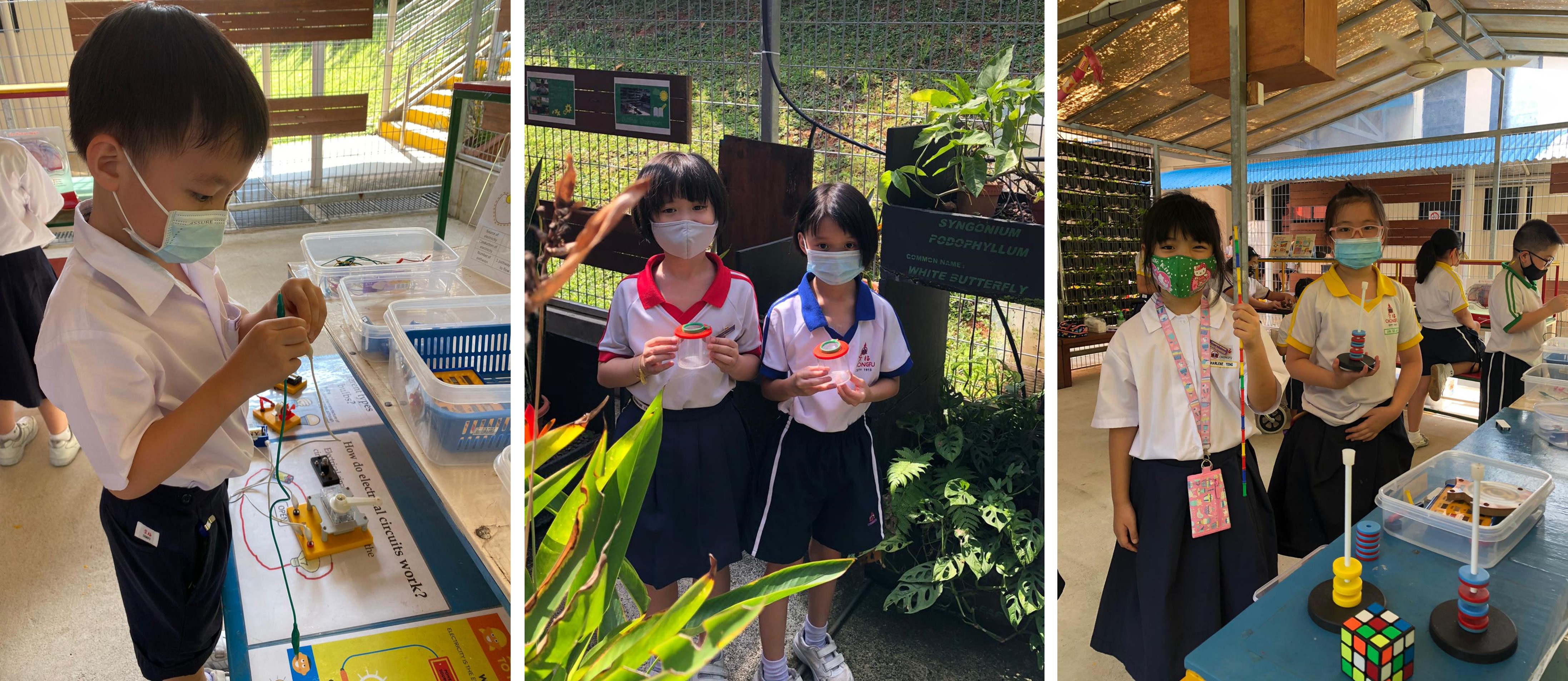
-
Chongfu School stands committed to doing our part for the environment, reducing carbon emissions and nurturing our students to be Stewards of the Environment.
Beyond the Science, and CCE core curricula which have integrated the teaching and learning of sustainability concepts, the Science department is working to advocate for sustainability practices that students can adopt as daily habits such as saving energy and water and reducing food waste. This strengthens the importance of sustainability as an integral part of our culture. Through the years, we have received several awards in recognition of our sustained environmental efforts.
The Science department partners with our parent volunteers in the maintenance of the Ecogarden. Where possible, the school also strives to leverage community partnerships to offer students more environment-related learning opportunities. Our sustained efforts to collaborate with and contribute to the North West community have been recognised through our achievement of the Outstanding School Partner Awards through the years.
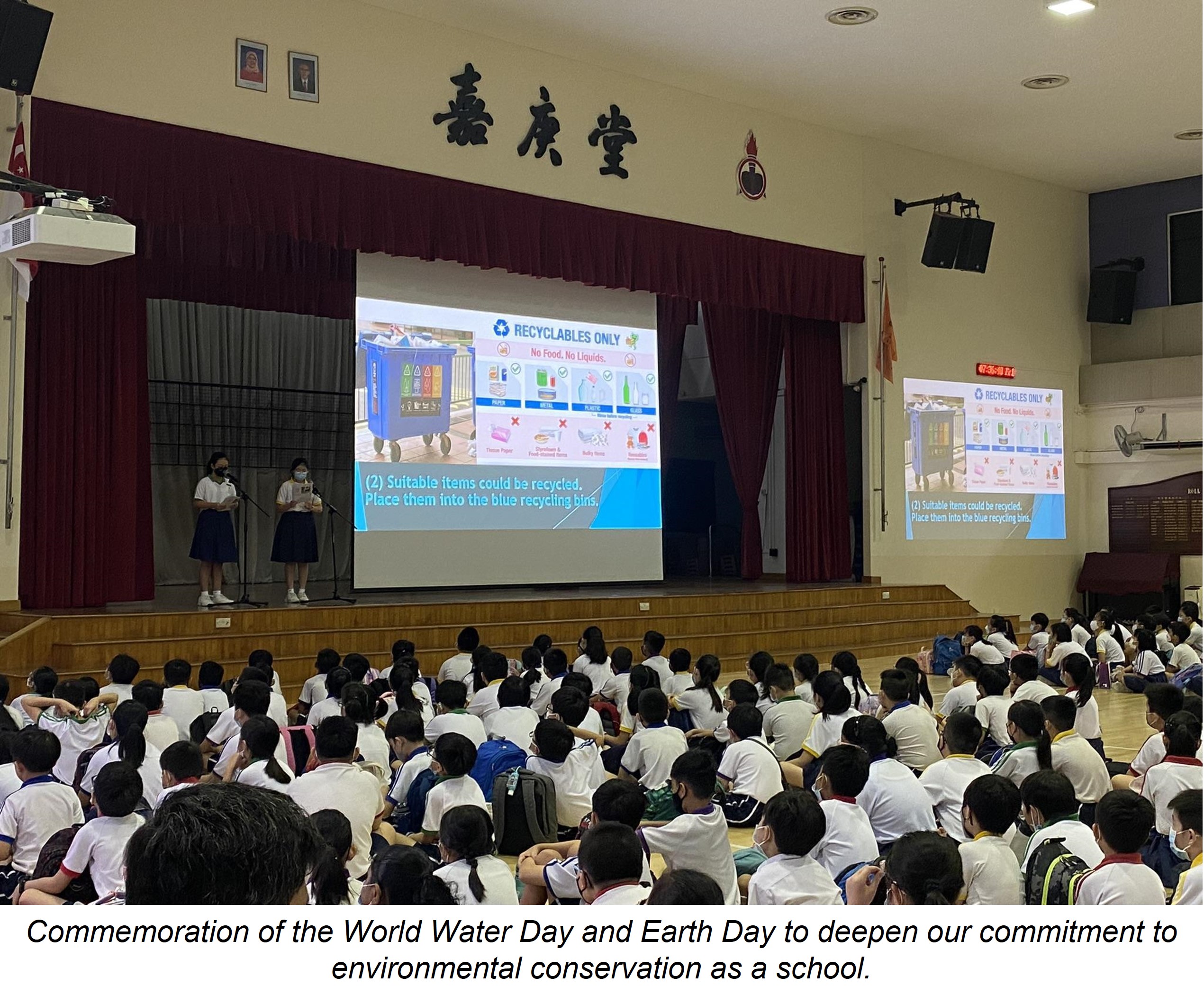
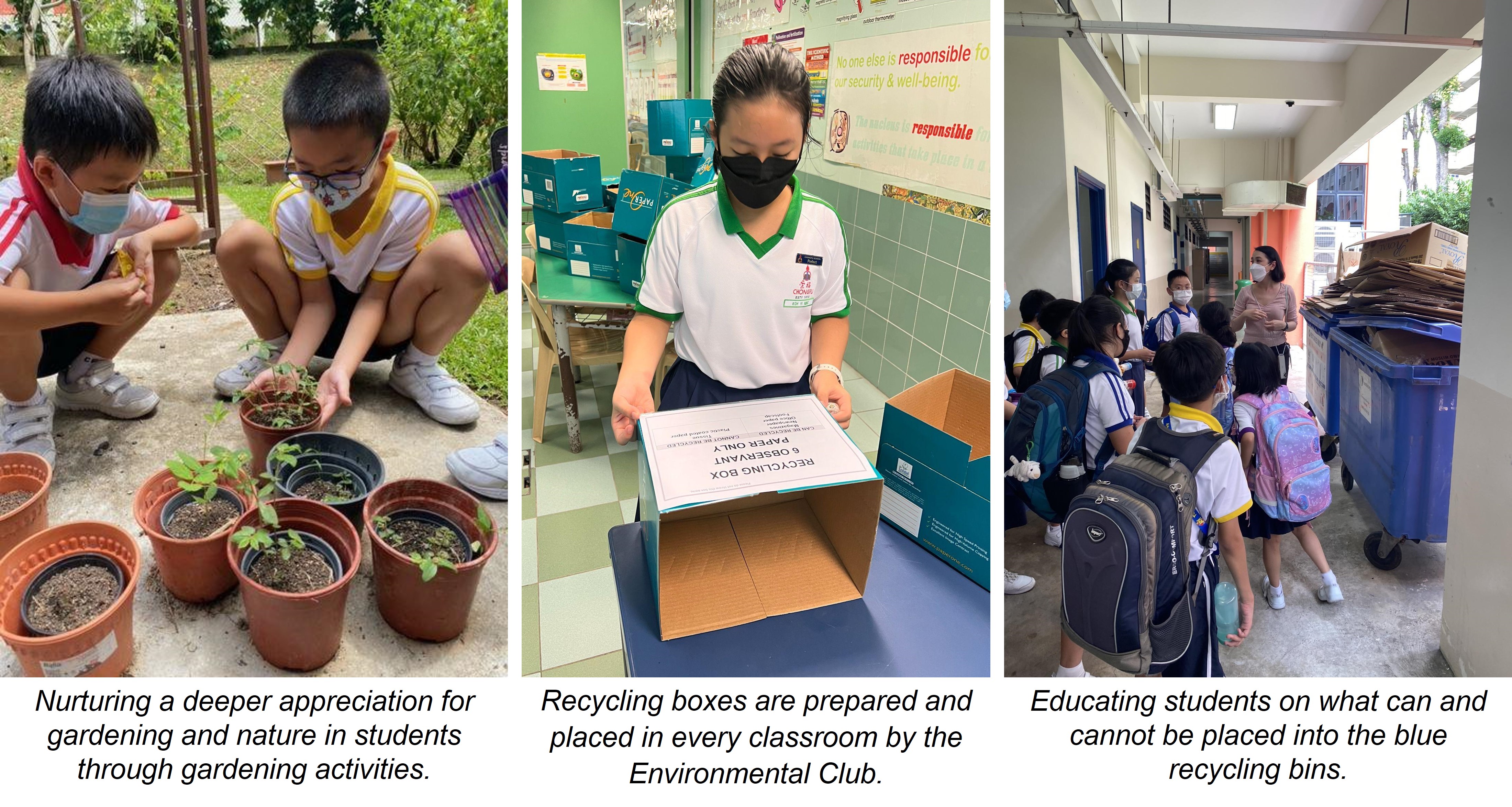
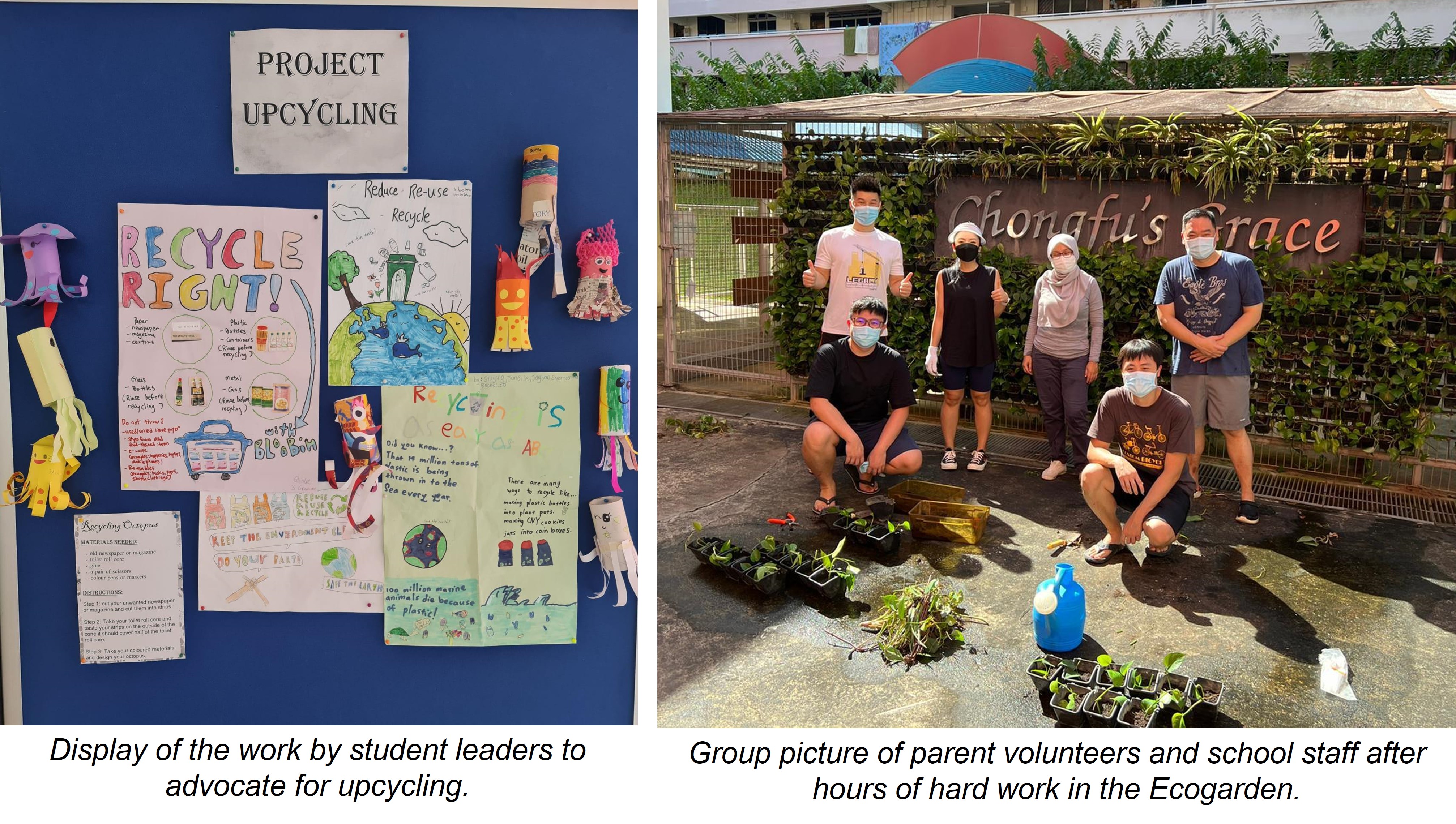
-
In 2023, our school launched the opening of our very own urban farm.
Farming lessons have been incorporated into the P1 and P2 PAL Outdoor Education domain and the Science curriculum. Students from various CCA groups, teachers, as well as parents have also been allocated plots to grow their vegetables.
Compared to traditional soil farming, the soilless farm is cleaner, uses less water and energy, and provides a higher yield. As a food-loving nation, we have to make our food supply more resilient. Through their experiences working on the urban farm, we hope to inspire our students and provide an opportunity for them to develop an interest in this sector.
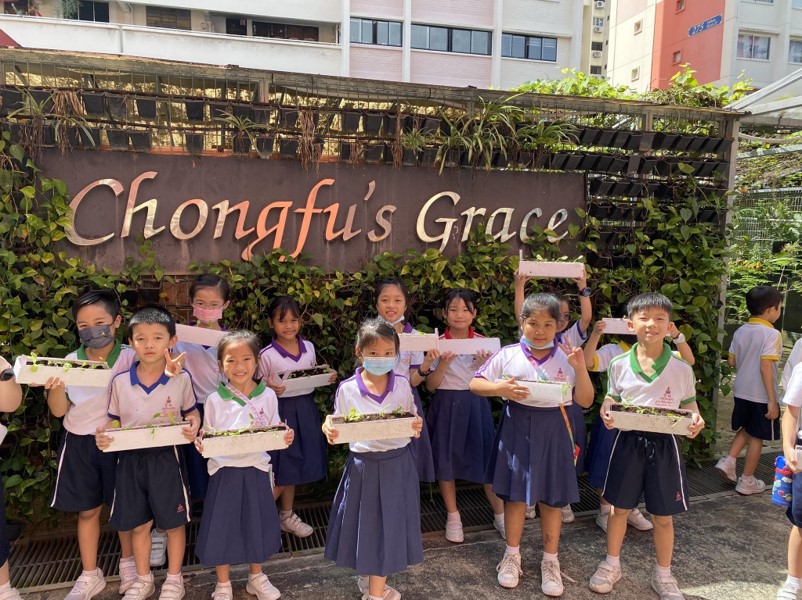
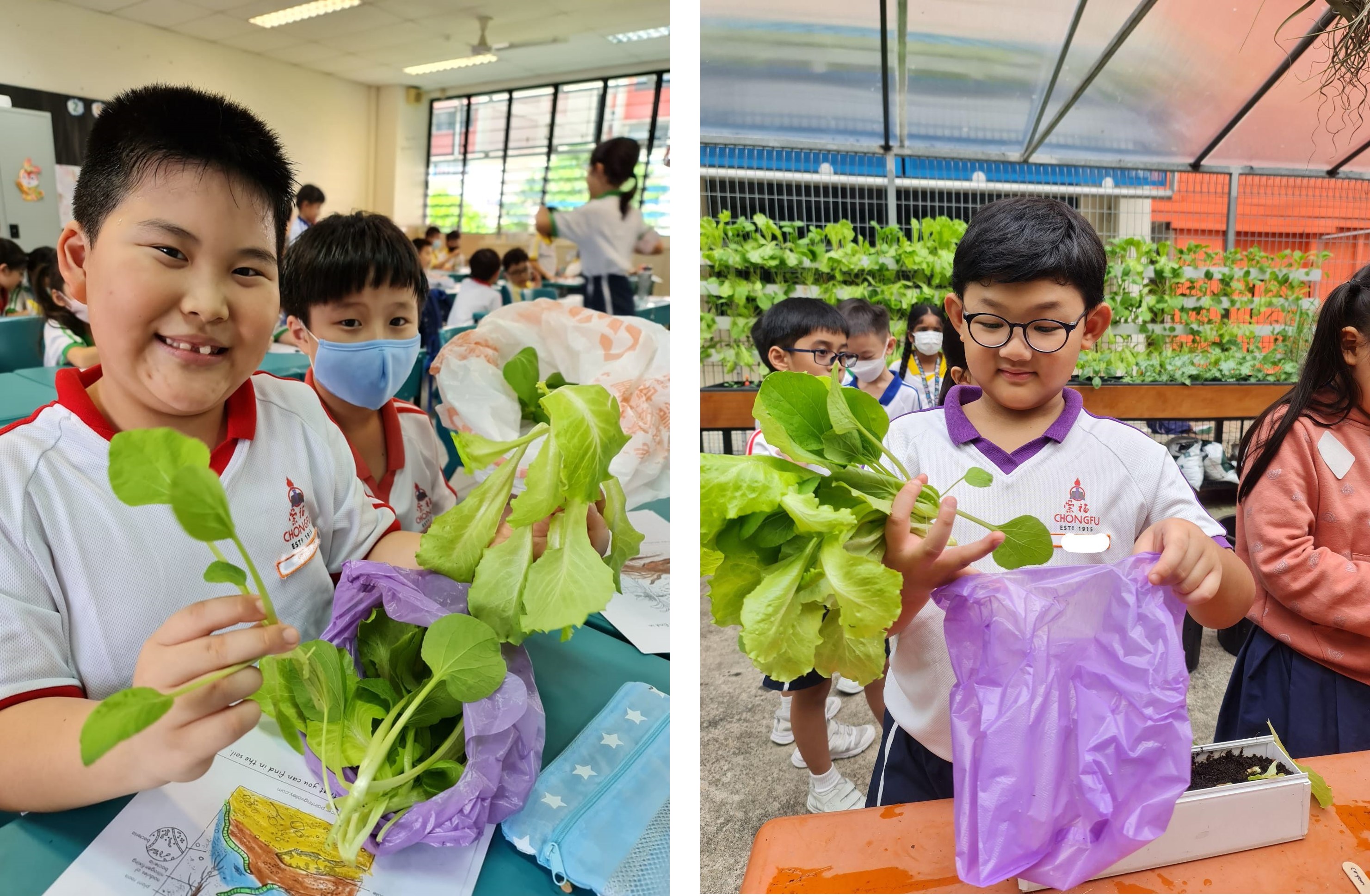
-
Chongfu School works closely with the Gifted Education Branch (MOE) in implementing an enrichment programme known as the Excellence 2000 (E2K) Science Programme. This programme is for selected students who demonstrate strong interest and aptitude in Science.
This is based on a curriculum for talented students in Israel. The instructional methodology and materials are designed to be relevant to the learners’ lives, with a strong focus on process and thinking skills in Science. They are aimed at stimulating curiosity while developing and strengthening abilities to study phenomena and their possible causes.
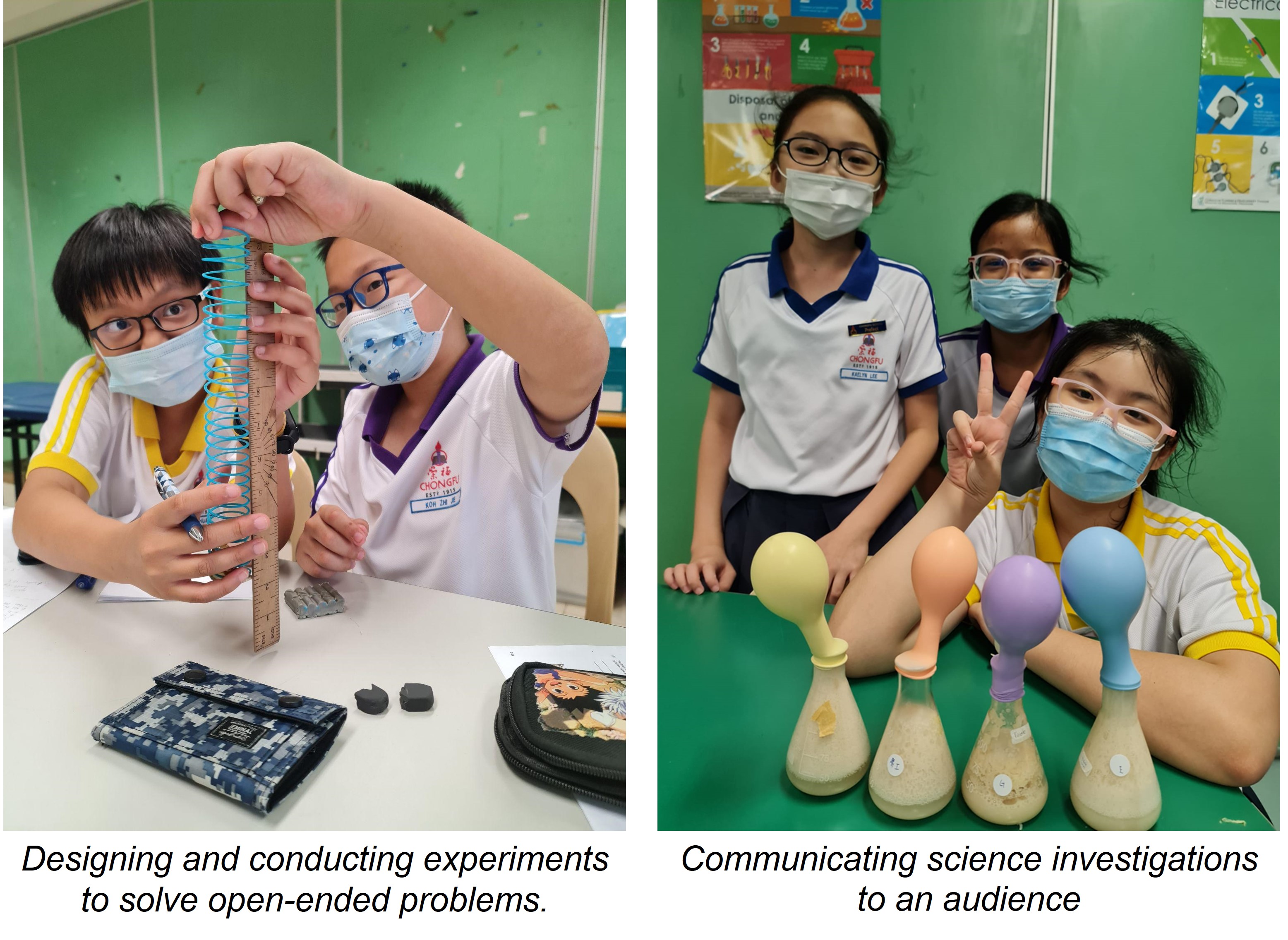
-
We participate in selected competitions, enrichment programmes and Olympiads, in order to provide selected students with wider opportunities and exposure to platforms beyond the school for them to apply the scientific skills and knowledge, learnt in school in authentic contexts.
Some of our students have done our school proud with their resilience and stellar performance. Some of these activities are listed below.


